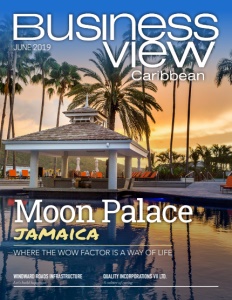On Saturday, May 11, 2019, at the Heritage Assembly of God in Wichita Falls Texas, USA, 38 newly minted graduates from the Caribbean region gathered to celebrate with family, friends, and supporters at the 2019 Caribbean student organization graduation ceremony and awards dinner. Graduates hailed from the islands of St. Kitts and Nevis, The Bahamas, Antigua and Barbuda, Saint Lucia, Dominica, Grenada and Barbados.
Karla Henry and Timon Thomas chaired the program. Raysheca Hanna delivered the opening prayer. Darien Roach delivered the President’s welcome. Midwestern State University’s (MSU) Associate Vice President of Student Affairs and Dean of Students, Matthew Parks, addressed the body and spoke on the richness that the Caribbean student organization brought to MSU and the Wichita Falls Texas community.
Director of International Services at MSU and the founder of the Caribbean Student Recruitment Program Initiative at the University, Dr. Randy Glean, introduced the keynote speaker, Dr. Mutryce A. Williams, a native of St. Kitts and Nevis and a 2001 graduate of the program. Dr. Williams encouraged the graduates to keep learning, believe in the possibility of their dreams and to pay it forward.
The main attraction of the evening was the moving speeches delivered by each graduate. Graduates recognized family, friends, and support systems who helped them to achieve their goals. Brian Blair delivered the valedictory address. Mendelsen Seaman did the vote of thanks. There was also a performance by current students, musical trio, the Preville Sisters, whose mother is a graduate of the program.
Graduates earned degrees in mental health, mechanical engineering, social work, respiratory care, accounting, finance, management information systems, graphic design, educational leadership, exercise physiology, computer science, psychology, chemistry, biology, and mathematics.
According to the Caribbean student organization’s website, in the spring of 1993, Glean officially launched the Caribbean recruitment program. Dr. Jesse Rogers created a platform which allowed him to recruit more students after the experimental admission of four students from Grenada. In the summer of 1993, visits to Antigua, Dominica, St. Vincent, and Grenada, produced eight students in the fall of 1993 and an additional six in the spring of 1994.
The Caribbean Students Organization (CSO) was formed in January 1994 by 18 students enrolled at that time. The program was predicated on the simple proposition that these excellent students would be allowed to pay in-state tuition provided they maintained a pre-determined academic level.
This was accomplished by the provision of competitive waivers and partial tuition scholarships. Also, the current students agreed to provide essential adjustment services and assistance to students who arrived in the ensuing semesters. With the combination of these factors, the stage was set for the growth of the program. In the late spring of 1995, a change in state law threatened to derail the entire competitive waiver option and almost put an end to the program.
In response, Dr. Glean established partnerships with various organizations and governments, and secured funding and a structured platform that allowed the program to continue. As of January 2009, almost 1,000 students have been recruited and almost 250 Caribbean students are currently registered through this program. This has led to a stellar enhancement of the university’s reputation as an international entity and over 40 countries are currently represented among its student population.
CSO has been instrumental in creating an international housing program at Colony Park and in leading the charge for the internationalization of the campus. Students from Africa, India, Sri Lanka, and Nepal have all benefited from the CSO initiative and many other universities have begun to emulate the MSU model for developing a first-rate international program. After 15 years of growth, Caribbean students continue to graduate at an unprecedented 95 percent rate on time, with more than 60 percent achieving honors and over 70 percent going on to earn advanced degrees.


